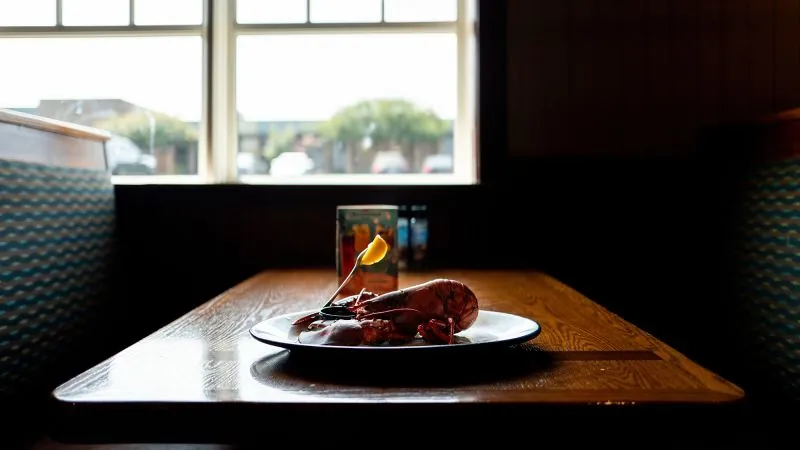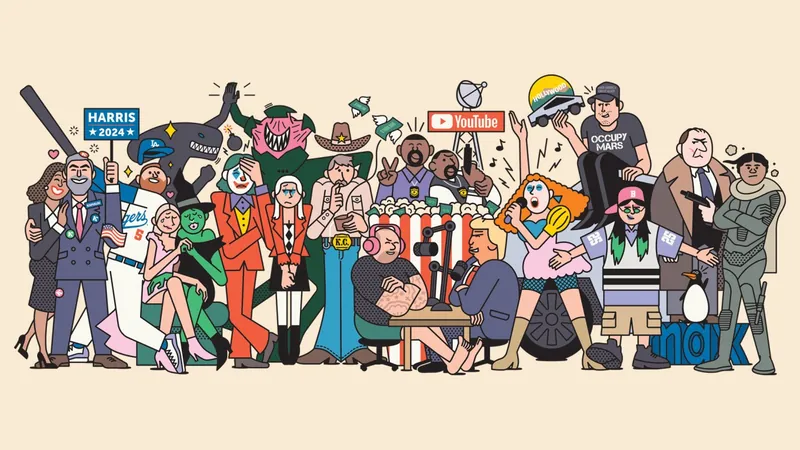
The Shocking List: 12 Major Companies That Went Bankrupt in 2024!
2024-12-22
Author: Yan
2024 has been a harrowing year for many widely recognized brands, with recession-driven shifts, evolving consumer preferences, and startling cyber threats driving some big names into the ground. As inflation continued to plague the economy, consumers curtailed non-essential spending, driving numerous companies to the brink of financial ruin. A staggering 19 firms collectively laid off around 14,000 workers amid these bankruptcies, as reported by outplacement service Challenger, Gray & Christmas.
Retailers were particularly hard hit this year. After experiencing a frenzy of consumer spending in 2021 and 2022, the tide has drastically turned, leading to over 7,100 store closures by the end of November—a 69% increase compared to the previous year, according to research from CoreSight.
It’s important to note that bankruptcy, especially filing for Chapter 11, doesn’t necessarily signal the end of a company; rather, it often presents an opportunity for restructuring, debt management, and downsizing operations strategically to recover.
Here’s a look at some of the most notable bankruptcies of 2024:
Big Lots
In a dramatic turn of events, Big Lots filed for bankruptcy in September. Faced with “substantial doubt” about its survival, the discount retailer's planned sale to a private equity firm fell through, leaving it with no choice but to shut down all 963 remaining store locations.
Bowflex
Famed for its late-night infomercials, Bowflex hit a rough patch, declaring bankruptcy in March. After a few months of restructuring, the company found a lifeline through a Taiwanese firm, which purchased most of its assets for $37.5 million.
Express
Once a staple of shopping malls, Express filed for bankruptcy in April, suffering from a series of missteps that failed to engage consumers. After closing nearly 100 locations, it was acquired by a consortium led by WHP Global in June, marking a new chapter for the brand.
Joann
The fabric and craft retailer Joann, valued for its arts supplies, succumbed to financial pressures and filed for bankruptcy in March. With consumer spending down dramatically, Joann’s stock was delisted from Nasdaq—however, it was able to negotiate terms to remain operational as a privately held entity with all 850 stores still open.
LL Flooring
Previously known as Lumber Liquidators, LL Flooring struggled in August due to a decline in home renovation spending. Although facing the prospect of closing all 94 stores, a private equity firm came to the rescue to keep the brand afloat.
Party City
The iconic party supply store chain filed for bankruptcy for the second time in less than two years in December. Struggling with inflation and $800 million in debt, the chain announced plans to close around 700 locations early next year.
Red Lobster
The seafood giant declared bankruptcy in May, facing fierce competition and years of neglect in service and quality. After closing over 100 outlets, it managed to emerge from bankruptcy in September under new ownership, promising exciting menu updates.
Spirit Airlines
In November, budget airline Spirit found itself in bankruptcy due to numerous factors including significant losses and increased competition. Through restructuring, the airline aims to reduce debt and regain financial flexibility in the coming months.
Stoli
The famous vodka’s parent company, Stoli Group USA, filed for bankruptcy in December due to dwindling spirits demand and a debilitating cyberattack, alongside prolonged legal battles involving Russia.
TGI Fridays
Famous for its casual dining experience, TGI Fridays filed for Chapter 11 in November, citing the pandemic’s lingering effects on its financial health. The chain plans to utilize the restructuring process to explore new strategies for survival.
True Value
The venerable hardware store chain True Value filed for bankruptcy in October, as a vital part of its operations was sold to a competitor. The firm reported it was experiencing a cash crunch due to a stagnant housing market and changing consumer spending habits. Luckily for customers, True Value stores remain open and operational despite their financial struggles.
Tupperware
Once a household name, Tupperware faced a growing crisis and uncertainty, leading to speculation about its future as it navigates the challenges of modern consumer behavior.
The array of companies that fell into bankruptcy in 2024 illustrates the unforgiving landscape of retail, often exacerbated by economic downturns and shifting consumer trends. While some may disappear, others may yet rise again stronger than before. Keep an eye out for potential turnarounds and new business strategies as these brands navigate their challenging waters!




 Brasil (PT)
Brasil (PT)
 Canada (EN)
Canada (EN)
 Chile (ES)
Chile (ES)
 España (ES)
España (ES)
 France (FR)
France (FR)
 Hong Kong (EN)
Hong Kong (EN)
 Italia (IT)
Italia (IT)
 日本 (JA)
日本 (JA)
 Magyarország (HU)
Magyarország (HU)
 Norge (NO)
Norge (NO)
 Polska (PL)
Polska (PL)
 Schweiz (DE)
Schweiz (DE)
 Singapore (EN)
Singapore (EN)
 Sverige (SV)
Sverige (SV)
 Suomi (FI)
Suomi (FI)
 Türkiye (TR)
Türkiye (TR)